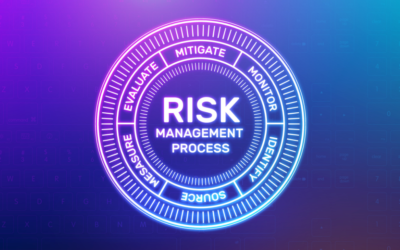The construction industry is highly reliant on efficient procurement processes to ensure projects are completed on time and within budget.
Procurement in this sector involves the acquisition of materials, services, and equipment necessary for construction projects. This process is crucial for project success but is often marred by challenges such as coordination issues and complex management requirements.
The Importance of E-Procurement in Construction
E-Procurement, or electronic procurement, leverages digital technologies to streamline procurement processes, improve efficiency, and reduce costs. In the construction industry, E-Procurement can address many of the traditional challenges by enhancing transparency, facilitating better supplier management, and providing real-time data for informed decision-making.
Key Challenges in Construction Procurement
- Coordination Issues: One of the major challenges in construction procurement is the difficulty in coordinating the efforts required for material procurement. Contractors often import all necessary materials onsite with an overall project view, but this can lead to inefficiencies and delays.
- Project Management Responsibilities: Project managers play a crucial role in the procurement process, ensuring tight control and management in several key areas:
- Defining Project Requirements: Clear and precise project requirements are essential to guide the procurement process.
- Soliciting Bids and Selecting Services: Competitive bidding and careful selection of services are crucial for cost-effectiveness.
- Buying or Leasing Supplies and Equipment: Decisions on purchasing or leasing should be based on project needs and budget constraints.
- Contract Management: Effective review and management of contracts ensure that all parties meet their obligations.
- Budget Tracking and Schedule Management: Keeping track of the budget and project timeline is vital for avoiding cost overruns and delays.
- Issue Resolution and Risk Management: Proactively managing risks and resolving issues promptly can prevent project disruptions.
Strategies for Successful E-Procurement
- Defining Project Requirements: Accurate and detailed project requirements form the foundation of a successful procurement strategy. This involves understanding the scope of the project, the materials needed, and the timelines.
- Supplier Selection and Management: Choosing the right suppliers is critical for ensuring the quality and timely delivery of materials. This includes:
- Pre-qualification and onboarding of suppliers
- Migrating existing supplier databases
- Proactively managing supplier relationships
- Ensuring regulatory compliance
- Continuously tracking and rating supplier performance metrics
- Contract Management: Effective contract management involves reviewing, negotiating, and overseeing contracts to ensure compliance and mitigate risks. This ensures that all contractual obligations are met and any disputes are resolved swiftly.
- Risk Management: Identifying and managing risks is essential for maintaining project timelines and budgets. This includes anticipating potential issues and having contingency plans in place.
Optimizing Procurement Processes
- Spend Visibility: Many construction companies lack a clear overview of their spending, which can lead to inefficiencies and increased costs. A spend management solution integrated into the procurement strategy can provide the necessary transparency. ELIT Procure-to-Pay (P2P) Cloud offers a spend analytics dashboard to ensure optimal cost efficiencies and savings.
- Data Processing and Decision Making: Handling large volumes of data is a significant challenge in construction procurement. Businesses need to make sense of internal and external data to drive project success. A robust and scalable purchasing software helps with:
- Seamlessly integrating with existing ERPs and third-party systems
- Managing data creep effectively
- Enabling informed decision-making with minimal effort
- Supplier Management and Risk Mitigation: Effective supplier management and risk mitigation are crucial for successful procurement. Creating a robust supplier network and establishing real-time communication channels can enhance responsiveness and supply chain reliability. The ELIT eSupplier module assists with:
- Pre-qualifying and rapidly onboarding suppliers
- Managing existing supplier databases
- Proactively managing supplier relationships
- Ensuring regulatory compliance
- Tracking and rating supplier performance metrics

ELIT Solutions for E-Procurement
ELIT offers a comprehensive suite of solutions to address the unique challenges in construction procurement, focusing on the following key areas:
- Operational Transformation: ELIT helps transform procurement operations to enhance efficiency and effectiveness.
- Strategic Sourcing & Supplier Management: ELIT’s tools aid in strategic sourcing and effective supplier management, ensuring the right suppliers are chosen and maintained.
- Category Management: Managing procurement categories effectively helps in optimizing spending and improving procurement outcomes.
- Supplier & Procurement Analytics: ELIT provides advanced analytics to track and improve supplier performance and procurement processes.
- Supply Chain Transparency: Transparency in the supply chain is critical for identifying potential issues and ensuring smooth operations. ELIT’s solutions provide real-time visibility into the supply chain.
- Logistics Management: Efficient logistics management ensures timely delivery of materials and services, reducing delays and enhancing project outcomes.
- Spend Analytics & Cost Reduction: ELIT’s spend analytics tools help identify cost-saving opportunities and drive efficient spending programs.
- Supplier Performances: Continuous tracking and evaluation of supplier performance ensure high standards and optimal procurement outcomes.
- KPI and Metrics Optimization: Optimizing key performance indicators (KPIs) and metrics helps in assessing procurement efficiency and identifying areas for improvement.
Conclusion
E-Procurement in the construction industry is a game-changer, offering solutions to traditional procurement challenges and enhancing efficiency, transparency, and cost-effectiveness. By leveraging technologies and solutions like those provided by ELIT, construction companies can optimize their procurement processes, manage risks better, and ensure successful project deliveries. Embracing E-Procurement is essential for staying competitive and achieving long-term success in the construction industry.
Contact ELIT Solutions today to learn how our comprehensive suite of procurement tools can help your construction business thrive.
INTERESTED TO KNOW MORE?
CLICK THE BELOW BUTTON TO SCHEDULE A DEMO WITH US!





